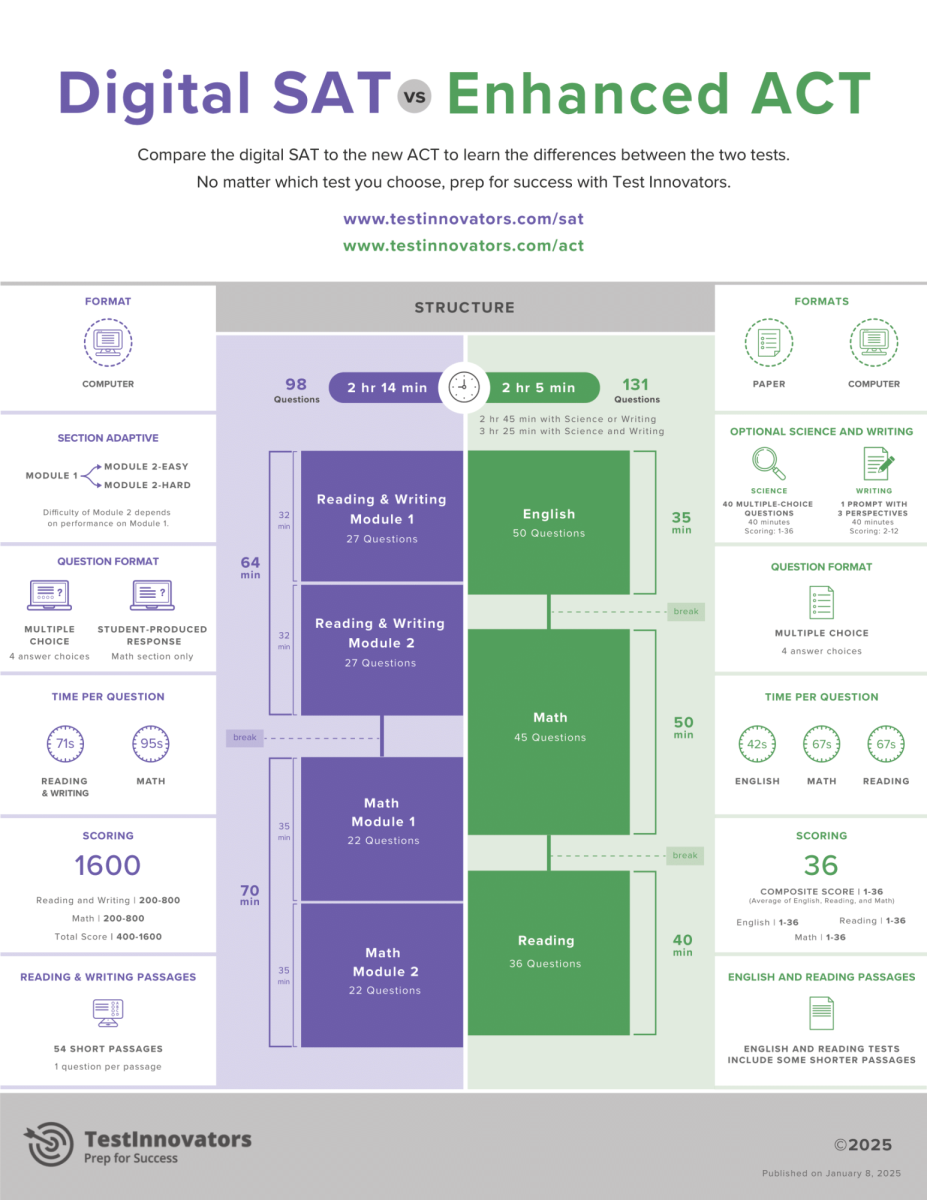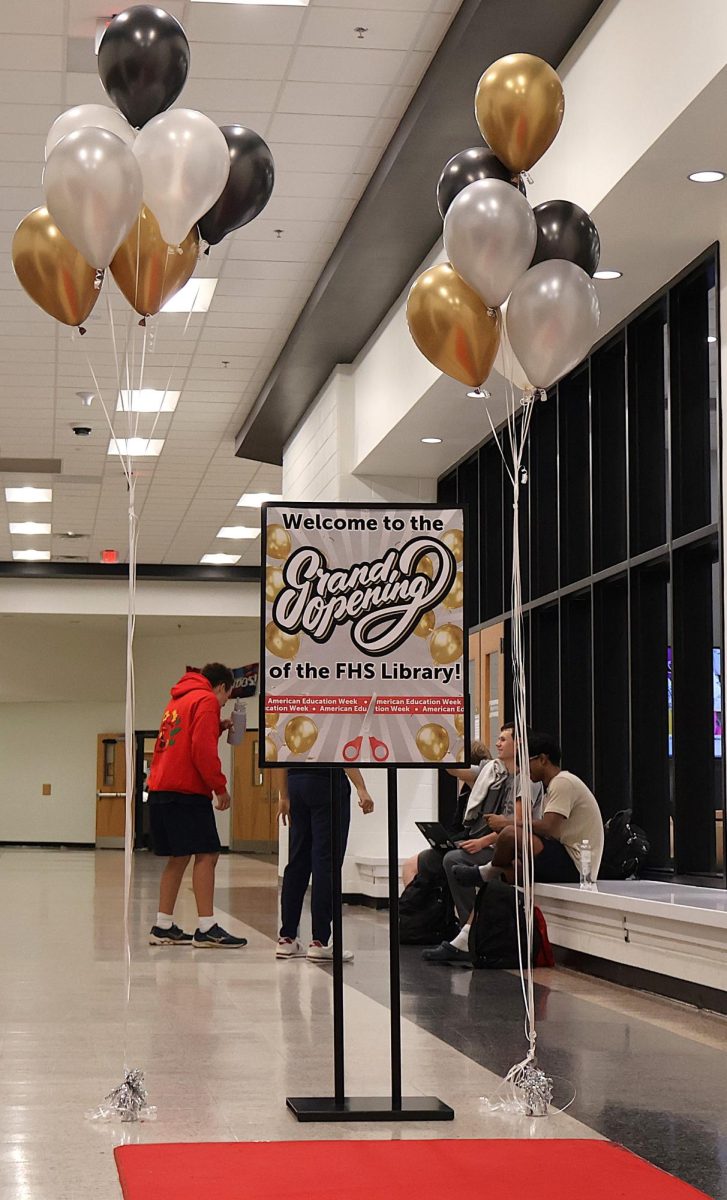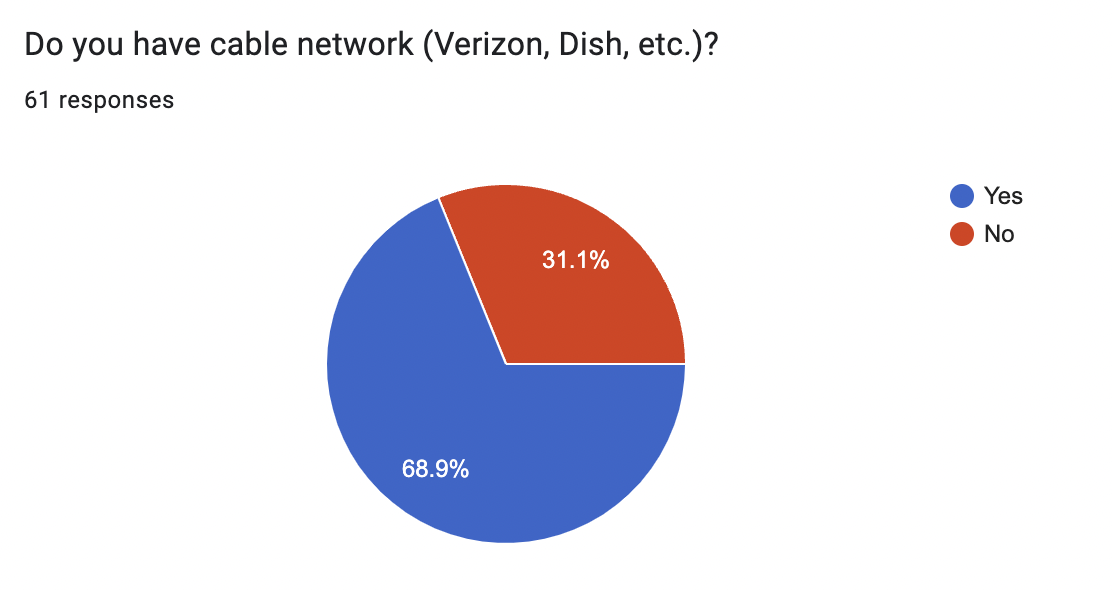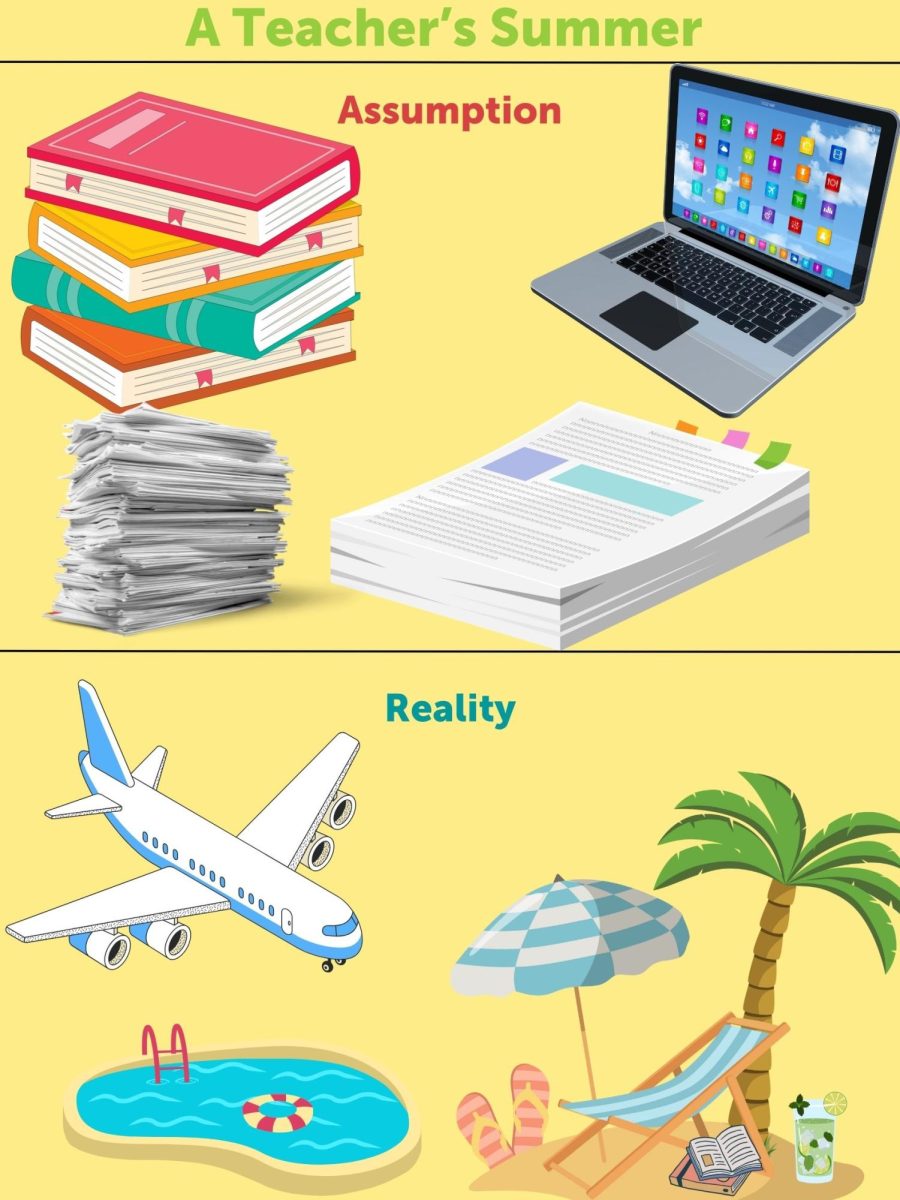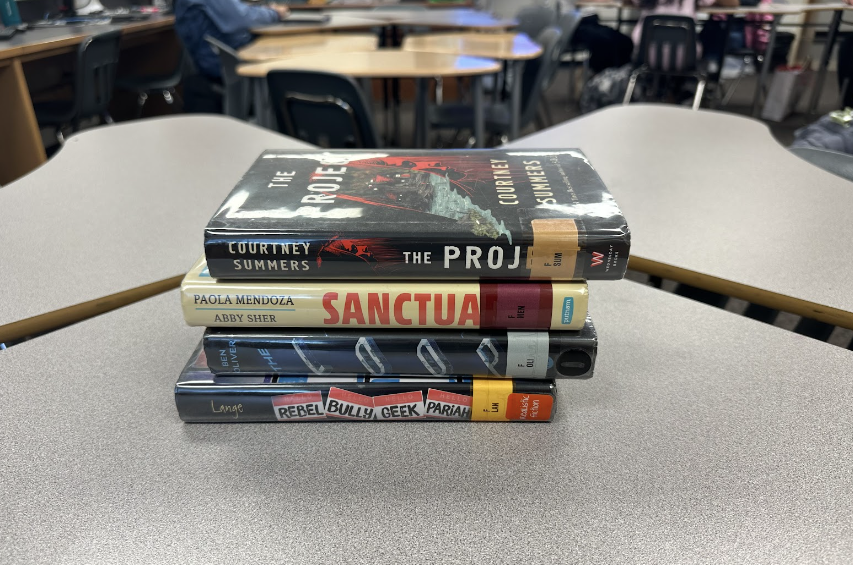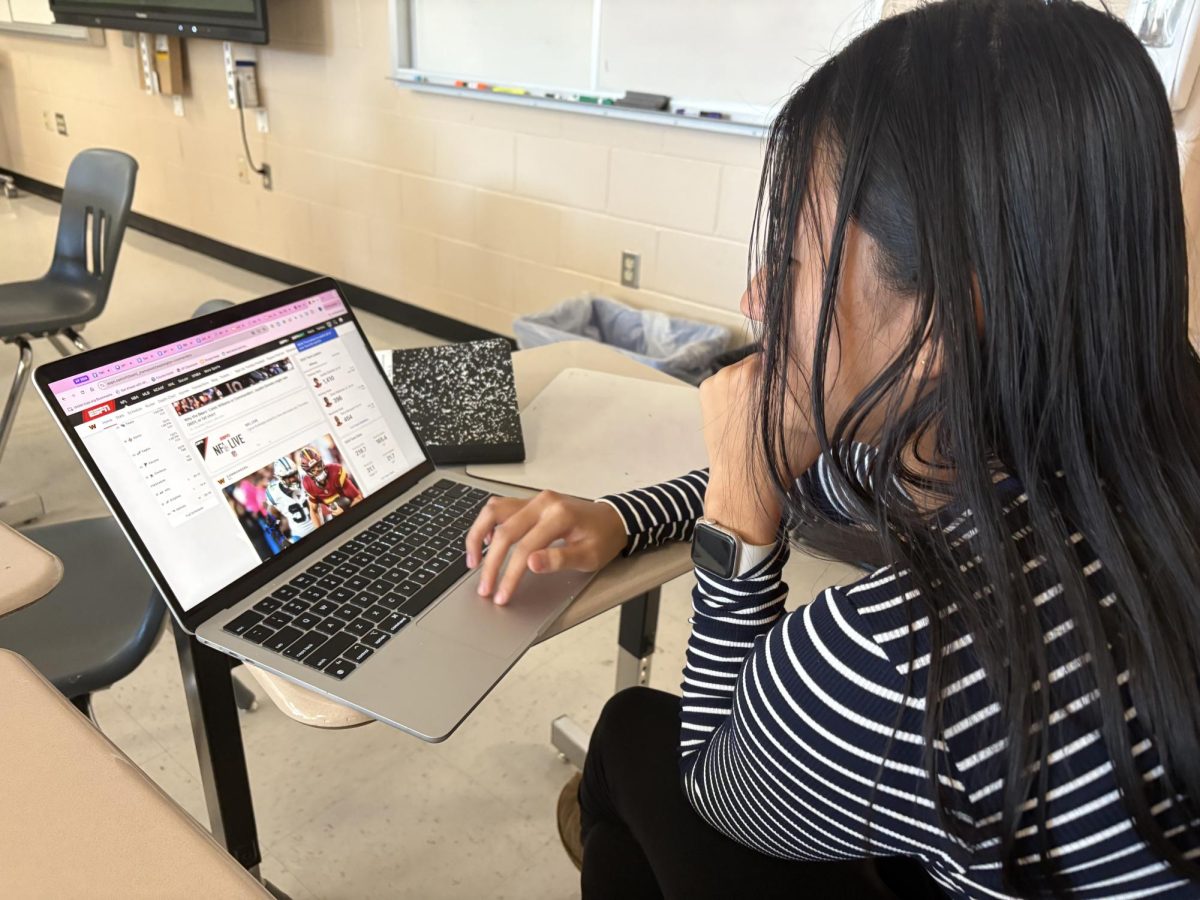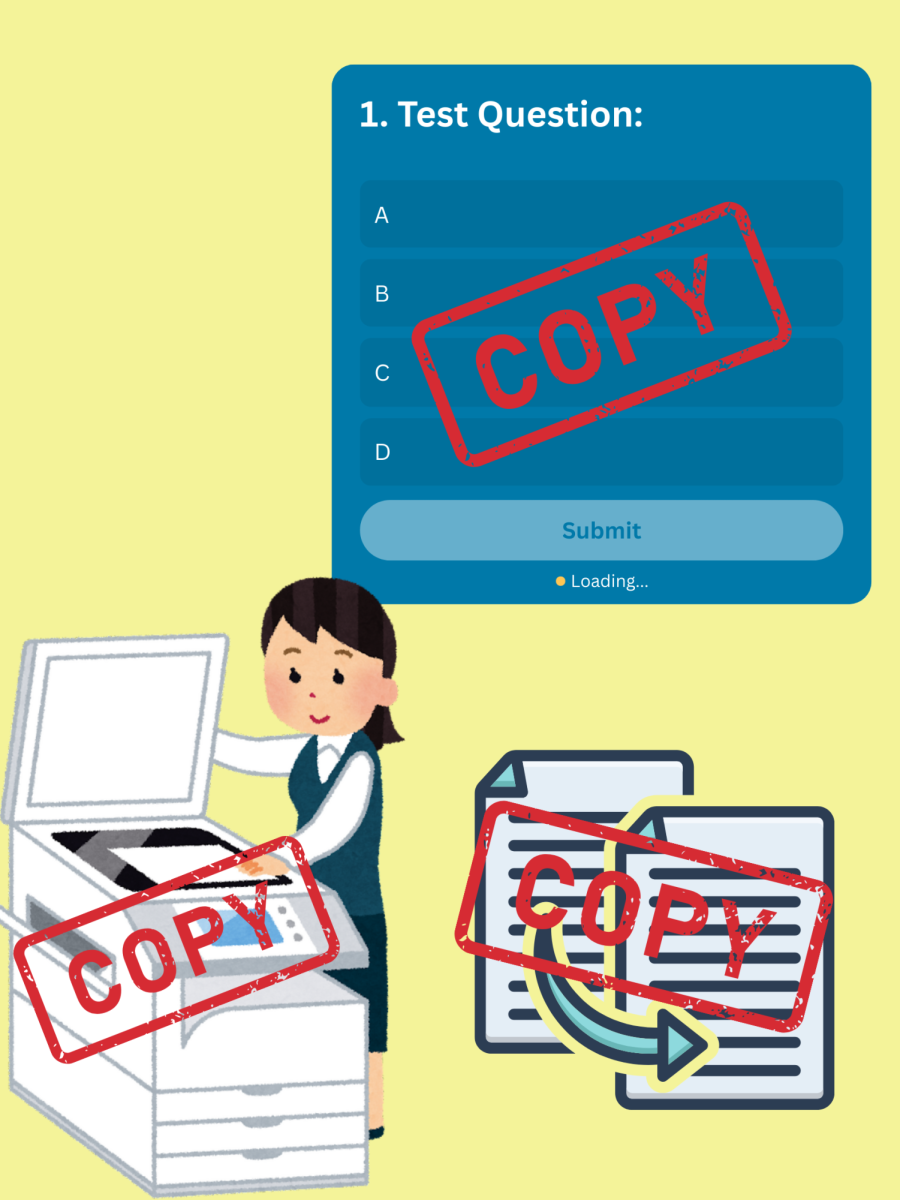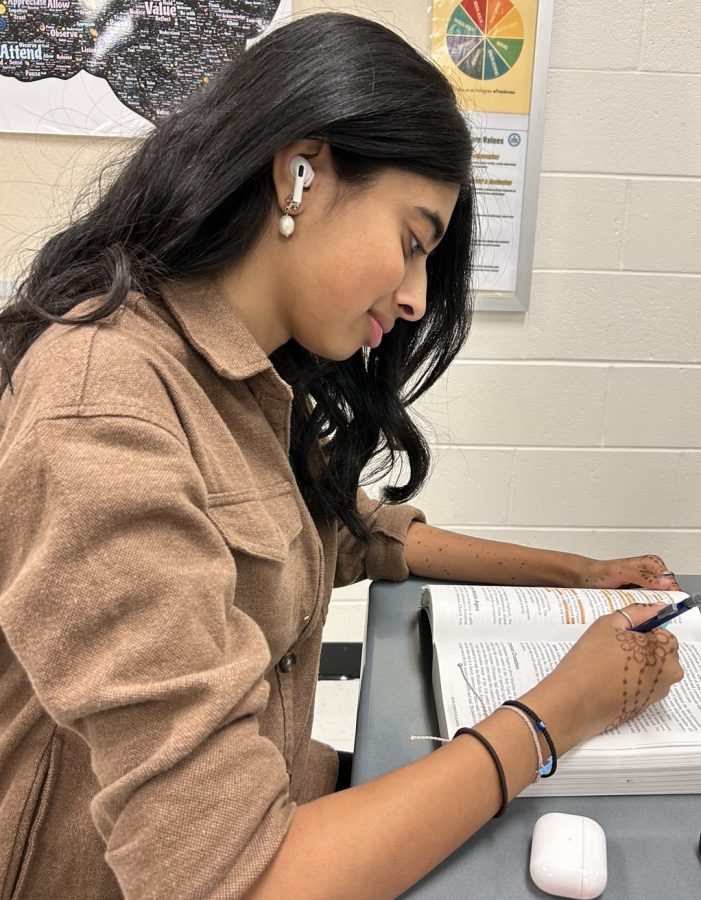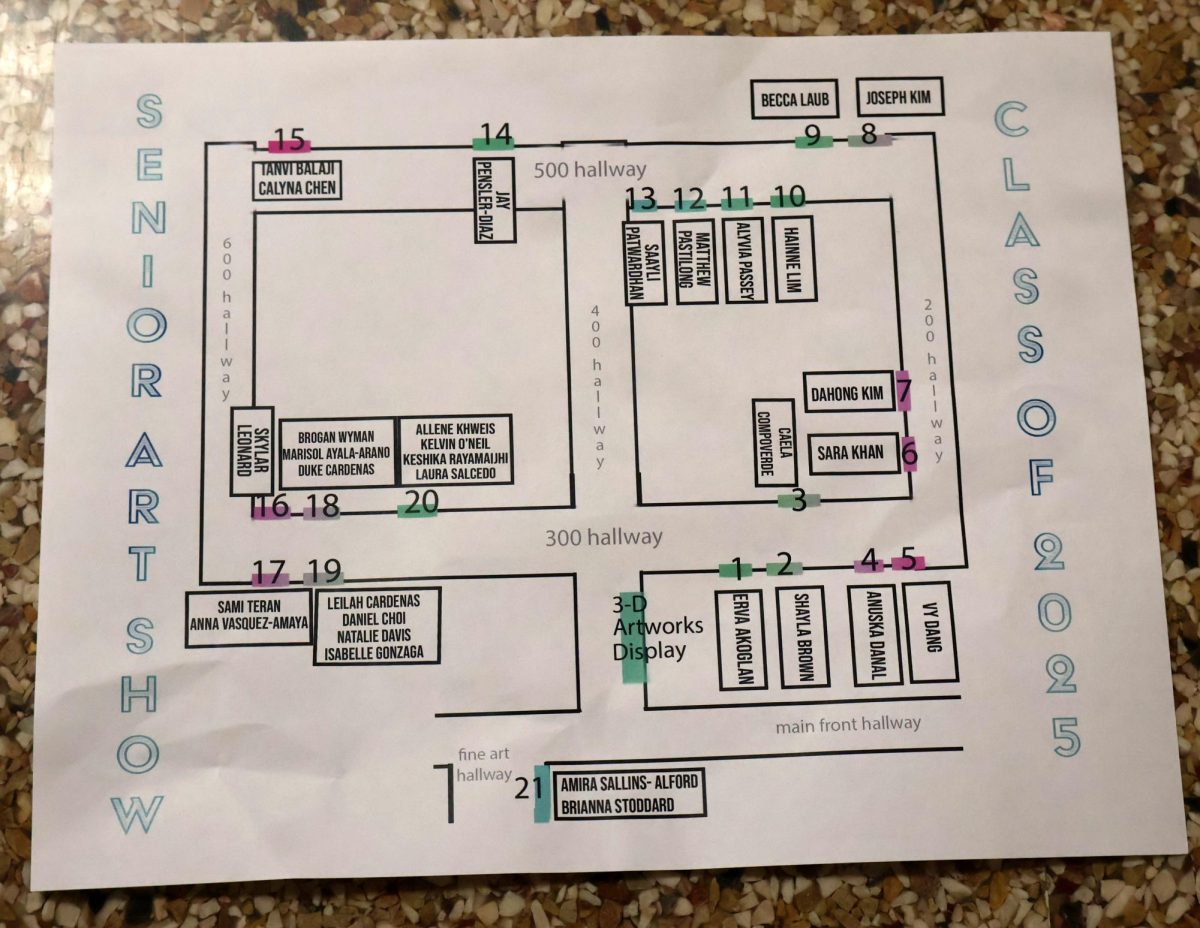Freedom’s Students and Staff Share the Effects of Music on Productivity
Kaushi Ellinedi, a sophomore at Freedom High School, listens to music while studying for her upcoming AP World History test.
October 26, 2022
We live in a world where music is everywhere. It is not uncommon to see people listening to music everywhere you go, especially after the release of Airpods in 2016.
This has allowed many students to listen to their favorite songs all throughout the day, even when they’re not supposed to, by covering their ears with their hair or even a hat, now that they don’t have to worry about wired headphones. Schools, though, have slowly started to pick up on this and become more strict on the times that students are able to listen to music, worried that students are using music to tune out their teachers, rather than to help them focus.
“I would define ‘music used properly’ as music listening taking place during an agreed upon time,” said Matthew Kaberline, FHS English 10 teacher.
Kaberline believes that listening to music is helpful for students’ productivity during independent work, rather than during active teaching and learning. This is becoming a common theme between students and teachers, agreeing that music is only effective during independent learning.
During this time, Kaberline has noticed that students are less distracted by others around them and are able to stay more focused on their task. Some students, though, believe that music is only helpful when they are working on certain subjects.
“[Music] does help me focus, but only when I’m doing research or writing,” said junior Aashna Patel.
Patel has an off and on relationship with music, as it helps her do certain assignments, but negatively impacts her during more difficult or complicated work, such as doing math or studying for a test. She has found that music often affects her by not being able to remember information or slowing her down when doing specific tasks. This isn’t the same for all students, though.
Naina Bethi, a sophomore at Freedom High School and the Academies of Loudoun, has noticed that music allows her to focus and get through her work faster. It has allowed her, not only to focus better, but to calm down and relax.
“It helps me de-stress during class change and get into a good headspace for my next class,” Bethi said.
While most students enjoy listening to music during their work, the type of music they listen to ranges from many different genres and artists. Many students enjoy Pop, R&B, and Rap music, while others enjoy Choir and Classical music. Listening to instrumental music is beneficial to some students because it allows them to have background noise, without having the lyrics there to distract them and get them lost in the song. Even that doesn’t work for certain students, though, so they lean towards different methods to get them relaxed and focused.
These different routines that students follow while working, to substitute listening to music, include taking breaks in between, taking time to eat a snack, and reading or doing an activity that they enjoy every hour. Kaberline also suggests a breathing technique that allows him to stay calm.
“Take a few deep breaths at the start and end of each class. Breathe in for four seconds, hold for four seconds, and then slowly release for eight seconds. This type of rhythmic breathing is proven to have a calming effect,” Kaberline said.
Whether it is listening to music or following another system, the majority of the students at Freedom High School have a routine that allows them to be as productive as possible during these difficult years.
Here is a collection of songs that the students at Freedom enjoy listening to while studying:





